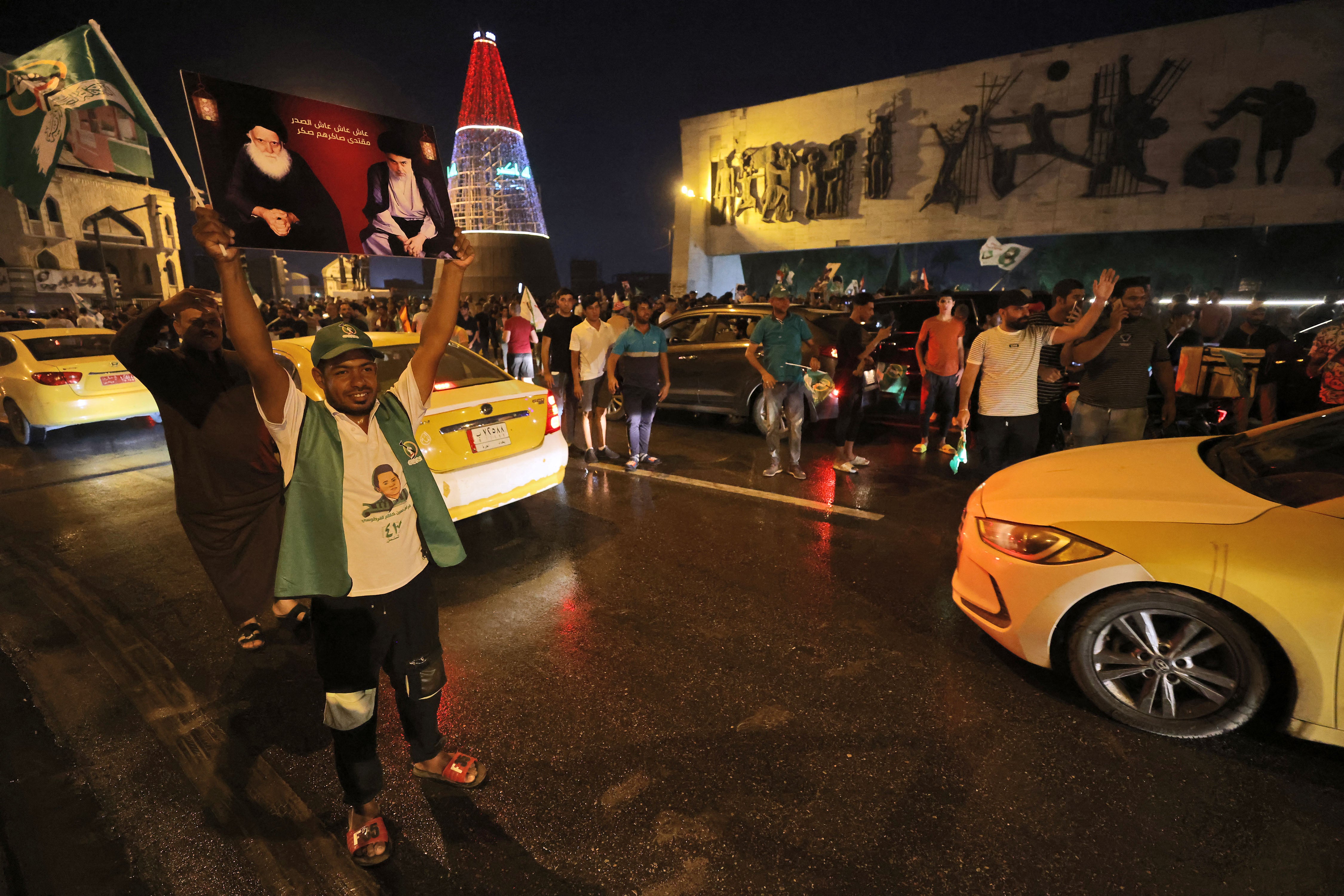Record low election turnout leaves Iraq facing more questions than answers
A kind of tired hopelessness hummed through election day, writes Bel Trew in Baghdad


Even those who were voting in Iraq’s elections questioned why they were bothering.
A kind of tired hopelessness hummed through election day. From supporters of Iraq’s largest party, the Sadrist Movement (which ultimately appears to have won), to those backing new activist-led parties, none of the people I spoke to believed there would be any fundamental change in the country – a place where, after years of conflict, corruption and international meddling, unemployment is rising and infrastructure is crumbling.
This was reflected in a record low provisional turnout of just 41 per cent, which served Iraq’s influential and sometimes maverick Shia cleric Muqtada al-Sadr well. His loyal support base showed up, helping to grant him as many as 73 seats of the 329-seat legislature. That is strides ahead of a Sunni coalition which, according to provisional results, came in second with just over half that number.
Anger at the ruling parties was reflected in the support for new activist-led parties and also the rejection of parties deemed to be in the pro-Iranian camp whose affiliated armed factions have been accused of crushing Iraqi’s 2019 protests, which sparked this early vote. A new party, which experts said signalled the first formal foray into civilian Iraqi politics of Kataib Hezbollah – the country’s most hardline Shia paramilitary group – reportedly only secured one seat. The party’s founder (an ex-KH security chief) was not elected. Fatah – which serves as a political umbrella for Shia militias in the Popular Mobilisation Forces – meanwhile lost dozens of seats according to provisional results.
And so while there is change, there is still a potentially rocky road ahead. Fatah has already, according to Iraqi media, said it will contest the election results alongside other parties that have not fared well, citing troubles with the new biometric voting system. Given some of them have affiliated armed wings, there have been warnings of trouble ahead.
The record low turnout is also not the resounding endorsement the new parliament needs ahead of its Herculean task of pushing through urgent reforms. Much of the youth, who arguably bear the brunt of Iraq’s woes, say the system is irreparably broken. Iraq can only hope they are wrong.
Yours,
Bel Trew
Middle East Correspondent



Join our commenting forum
Join thought-provoking conversations, follow other Independent readers and see their replies
Comments